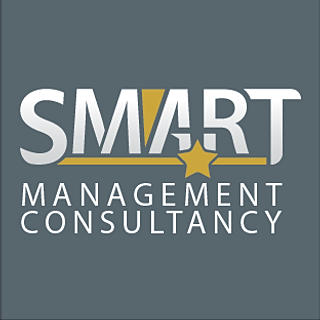Understanding the Fundamentals of Risk Management
- Smart Management Consultancy
- Jul 28, 2025
- 3 min read
In today's world, organizations face a wide range of uncertainties that can impact their goals and objectives. From financial fluctuations to cyber threats, businesses need a robust approach to navigate potential pitfalls. This is where risk management comes into play. This blog post will help you understand the fundamentals of risk management, its importance, and the critical components involved in creating an effective risk management strategy.
The Importance of Risk Management
Risk management is essential for the long-term success of any organization. It involves identifying, assessing, and prioritizing risks followed by coordinated efforts to minimize, monitor, and control the likelihood and impact of unfortunate events.
Consider this statistic: according to a study by the Institute of Risk Management (IRM), companies that implement proactive risk management strategies are 20% more likely to achieve their goals than those that do not. This highlights not only the importance of managing risks but also the benefits of having a structured approach to tackling uncertainties.

Businesses that integrate risk management into their decision-making processes tend to run more smoothly. For instance, in the context of financial management, understanding market volatility can lead to better investment decisions. In project management, assessing the risks associated with a project can lead to more accurate planning and resource allocation.
Key Components of Risk Management
Risk management comprises several key components that help organizations effectively identify and address potential risks:
Risk Identification: This step involves recognizing potential risks that could affect the organization's objectives. It could include market threats, regulatory challenges, or operational inefficiencies.
Risk Assessment: Once risks are identified, they must be evaluated for their potential impact and likelihood. This can be done using qualitative or quantitative methods.
Risk Mitigation: After assessing risks, organizations should develop strategies to mitigate them. This might involve implementing new policies, investing in technology, or training staff.
Monitoring and Reviewing: Risk management is an ongoing process. Regularly monitoring risks and reviewing the effectiveness of mitigation strategies is crucial for adapting to new challenges.
Communicating and Reporting: Effective communication is vital for successful risk management. Stakeholders should be kept informed about potential risks and the actions taken to address them.

What is a Risk Management Service?
A risk management service provides specialized assistance to organizations seeking to manage their risks effectively. These services range from risk assessment to developing comprehensive risk management strategies tailored to the unique needs of a business.
Organizations often turn to external risk management services, especially when they lack internal expertise or resources. This can make a significant difference, as these services often bring valuable experience and knowledge to the table. For example, external consultants may conduct in-depth analyses of potential risks that internal teams might overlook.
Companies providing these risk management services understand the intricacies of different industries. They can offer insights into strategies that have worked for similar organizations, leading to more effective risk management approaches.

Implementing Effective Risk Management Strategies
To effectively implement risk management strategies, organizations should follow these actionable steps:
Establish a Risk Management Framework: Create a structured framework that outlines processes for risk identification, assessment, evaluation, and treatment. The framework should also include roles and responsibilities for team members.
Engage Stakeholders: Involve relevant stakeholders throughout the risk management process. This collaborative approach ensures a diversity of perspectives and fosters a culture of risk awareness within the organization.
Educate Employees: Risk management is everyone's responsibility. Providing training and resources to employees can equip them to identify potential risks in their everyday tasks.
Utilize Technology: Leverage technology to enhance your risk management processes. Software solutions can help automate risk assessments and streamline communication across departments.
Regularly Review and Update Strategies: The risk landscape is constantly evolving. Regularly review and refine your risk management strategies to ensure they remain effective and relevant.
By taking these steps, organizations can better position themselves to manage risks effectively and take advantage of opportunities that arise.
Final Thoughts on Risk Management
Understanding the fundamentals of risk management is vital for any organization aiming for success in an unpredictable world. By implementing effective risk management strategies and utilizing risk management services when necessary, businesses can enhance their agility, resilience, and ability to navigate challenges.
Remember, risk management is not just about preventing negative outcomes; it's about making informed decisions that allow you to seize opportunities while safeguarding your assets. Embrace these principles, and you'll be better prepared to face whatever uncertainties come your way.















Comments